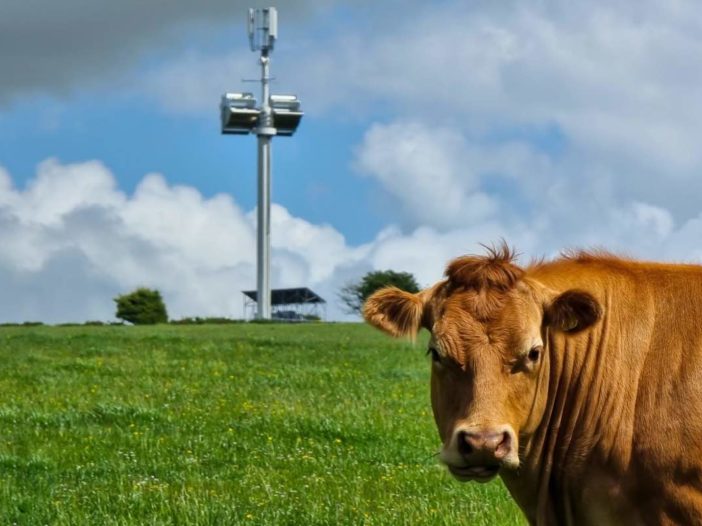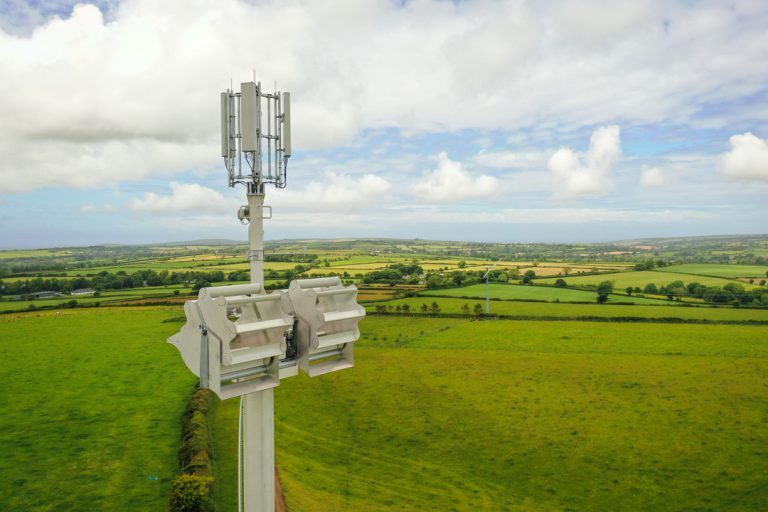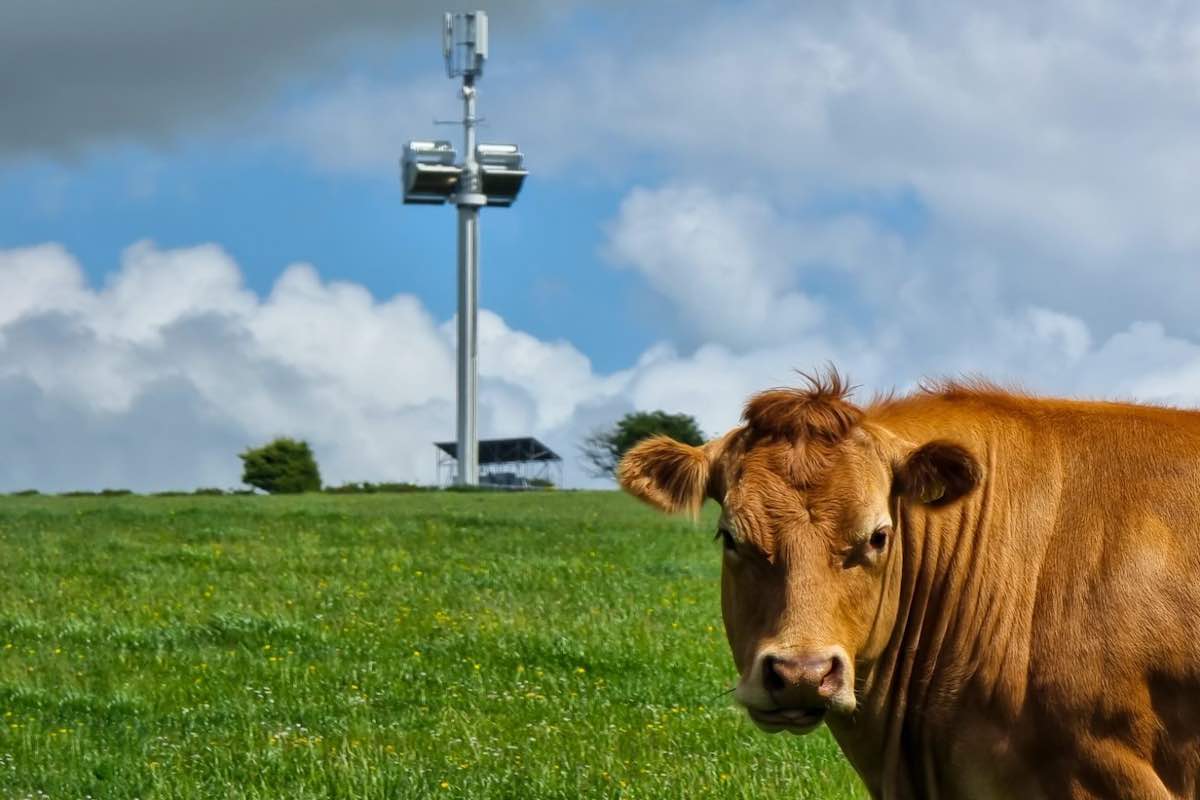
Vodafone has installed and switched on the UK’s first off-grid, wind and solar powered mobile phone tower – or mast – on a farm in Pembrokeshire, Wales, to provide renewable powered 4G coverage to the community of the small village of Eglwyswrw.
The “self-powering” mast, which can be installed without the need to dig trenches and lay electricity cables, incorporates a small “smart” wind turbine from Crossflow Energy, designed to generate power even in light winds.
It also incorporates solar panels and on-site battery storage, thus removing the need to connect to the grid and addressing the issue of connectivity in so-called “not-spots” in the UK’s most remote and inaccessible locations.
The turbine is also said to be “extremely quiet,” and safe for brids due to a design that Crossflow says allows it be “filtered out” as a solid object by radar, birds and bats, and thus easily avoided.

“Until now, the use of ‘small wind’ turbines in the race to net zero has been limited due to issues of performance, reliability, and planning concerns, such as noise, vibration, and damage to ecology,” said Crossflow Energy CEO Martin Barnes.
“The unique design of our wind turbine addresses all these challenges head on. We believe that one day its use could be as widespread and commonplace as solar panels.”
Vodafone is hoping for a similar outcome, noting that the installation of masts in coverage “not spots” without an existing electricity connection has so far presented a significant financial and logistical challenge to the telco.
“Connectivity is vital to everyone, no matter where you live,” said Vodafone chief network officer and development director Andrea Dona.
“This self-powering mobile phone mast, with on-site battery storage, could help us connect places that were previously impossible to reach. It will also help us reduce carbon emissions and minimise our impact on local environments.
“If this trial is a success, we would like to roll out more ‘self-powering’ masts, with a focus on areas with poor or no coverage,” Dona said.
Vodafone says the off-grid trial, which is being conducted in partnership with Crossflow Energy and mobile infrastructure partner Cornerstone, will run for two years and data gathered will help optimise the technology and determine the suitability of future sites for the “self-powering” masts.
In the UK, Vodafone has committed to reaching net zero operations by 2027, led by a switch to 100% renewable electricity underpinned by a 10-year power agreement with three local solar farms.
In Australia, TPG Telecom, which is the owner of Vodafone Australia, has committed to source all of its electricity from renewable sources by 2025, following a similar plan announced by Telstra in 2020.

Sophie is editor of One Step Off The Grid and deputy editor of its sister site, Renew Economy. Sophie has been writing about clean energy for more than a decade.



